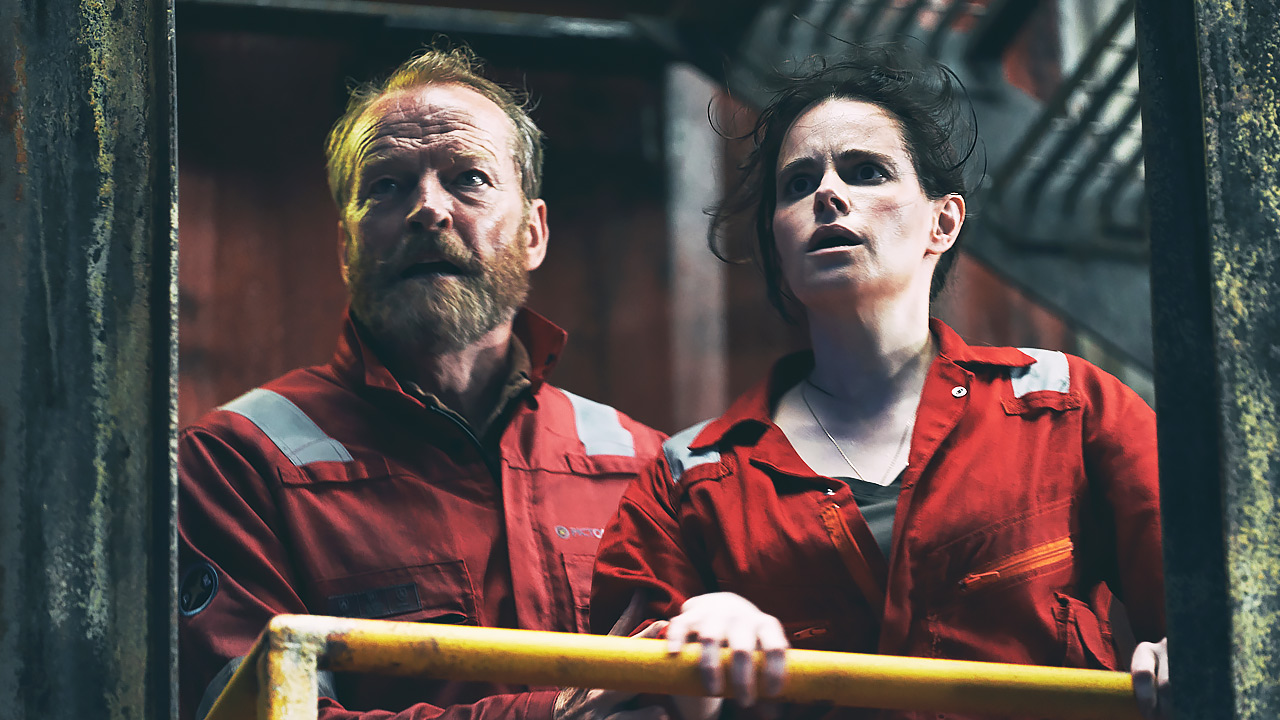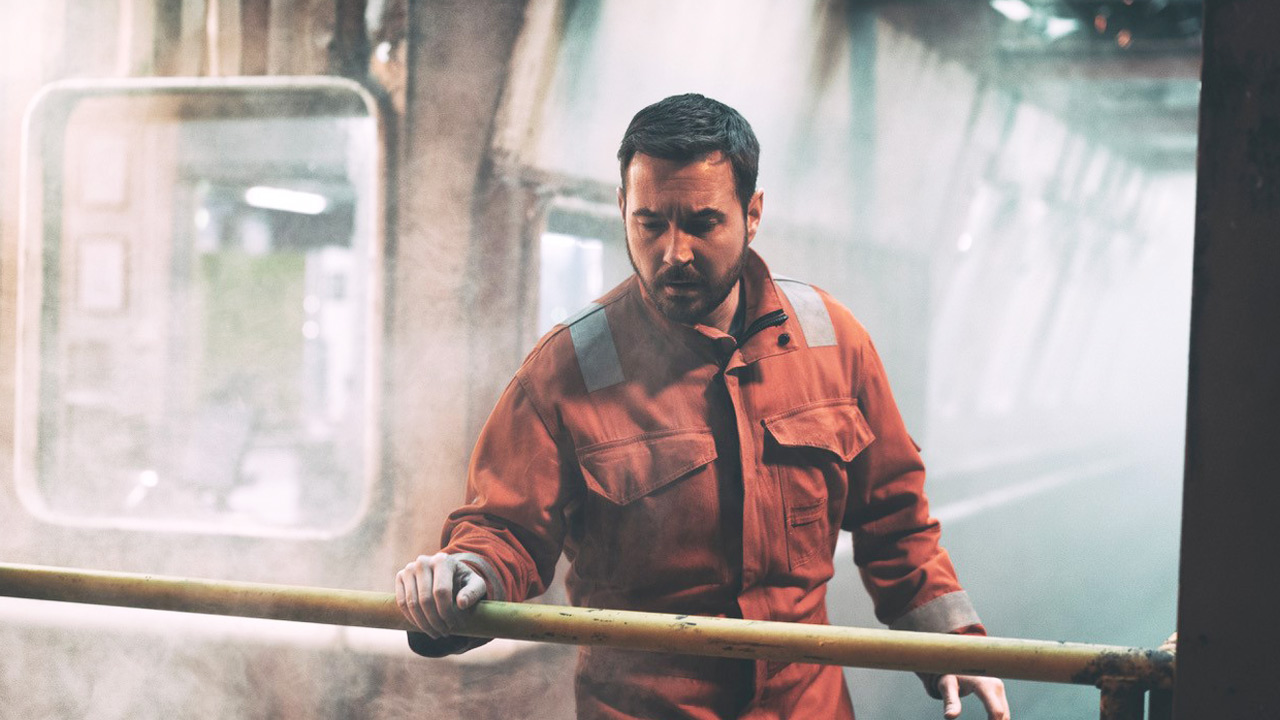Supernatural series The Rig has midnight movie vibes but takes itself very seriously

When a mysterious fog descends on an oil rig in the North Sea, strange things start happening. That’s the premise of The Rig—a so-so supernatural thriller featuring some deliciously Scottish turns of phrase, writes Luke Buckmaster.
Thick helpings of mist and fog never fail to intensify atmosphere and add cinematic flair. Mist and fog also imply ambiguity: the feeling that something (or many things) is being concealed, which suits a supernatural thriller like The Rig to a tee. This six-part Scottish series, created by David Macpherson and directed by John Strickland, is set on an oil rig situated on the North Sea, where workers deliver deliciously Scottish turns of phrase such as “arse over tit,” “stop fucking the dog” and “choosing between two shades of shite.”
These dudes swear like drunken, er, Scots, before a magnificently eerie fog envelops the rig and triggers all sorts of terrible happenings, truly giving the knockabout crew something to cuss about.
Inclement weather is used as a Macguffin, signifying a shift from one state of being into another—like the tornado in The Wizard of Oz. These workers, led by the calm and procedure-following Magnus (Iain Glen), aren’t spat out into another universe. But they might as well have been, discovering themselves stranded—with no ability to contact the outside world—in a kind of surreal purgatory. Some kind of ghastly ancient force appears to have climbed aboard, bringing The Thing-esque body horror. “There’s something out there, it’s coming,” says one poor sod, Calvin Demba’s Baz, who looks like he’s been bludgeoned by a demon—and also must suffer the indignity of gallingly boilerplate dialogue.
The crew is cranky before the cosmic force, or whatever it is, arrives to terrorize them. Because, indeed, they are Scottish. Also because the energy company they work for is screwing them, which creates bitter feelings and internal divisions at a time when group collaboration would be beneficial to their chances of survival. The show’s dichotomous core dynamic reflects a setup common in zombie and other kinds of horror movies—coupling an external threat, something terrible and probably unconquerable, with an internal destabilization, the humans butting heads and turning on each other. If this sounds a little familiar, it’s because the writers—Macpherson, Matthew Jacobs Morgan and Meg Salter—have absolutely no original ideas and bog themselves down with midnight movie tropes. All directed by unselfconsciously by Strickland, as if he is pioneering new ground or working with rich dramatic material .

The characters include an intellectual, Mark Bonnar’s Alwyn, who delivers monologues invoking ancient land formations and biblical analogies. Baz, the aforementioned poor sod, has a haunted, vacant look in his eyes: a doomed man also wrestling with the terror of bad dialogue (“it’s in the light!”). This terror also affects the geekiest person on board: Emily Hampshire’s Rose, who observes that “something is very wrong here” (no duh) and is also assigned the duty of expressing The Rig’s eco-friendly credentials. She believes the energy company can survive by changing course, noting that “carbon capture, renewables…that’s the way to keep everything moving.” This potted speech precedes a conversation about a mass extinction event, drawing a correlation between whatever ancient, supernatural force is wreaking havoc, and the contemporary actions of environment-destroying humans.
Does this climate-action message become more nuanced, or more on the nose, in the season’s second half? I won’t be finding out, having bailed three episodes in—deflated by a crippling sense of same-old same-old and an atmospheric trajectory that takes too long to do too little.
There’s a feeling that Macpherson, Strickland et al are delaying the inevitable: biding time and going through the motions, putting off the big reveal. I don’t know what this reveal will be, precisely, but I suspect—call it intuition—it’s not going to be worth the wait. The scariest feeling I experienced while watching The Rig wasn’t linked to the fog, the fatalities, the close-up images of bloodshot eyes, the question of who’s infected. It was triggered by a chilling thought: that the sixth episode could end ambiguously, stretching this middling mystery into a second season.


















